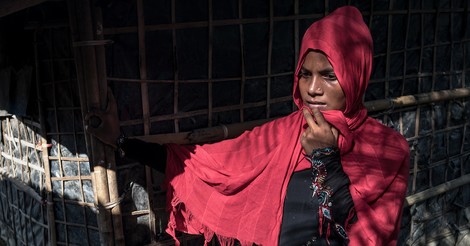Your podcast discovery platform
Curious minds select the most fascinating podcasts from around the world. Discover hand-piqd audio recommendations on your favorite topics.

piqer for: Globalization and politics Global finds
I am an Australian freelance journalist focussing on conflicts, politics, and warzones around the world. I have been working as a journalist for over 5 years, having reported from Australia, Germany, China, Egypt, Palestine, and Ukraine. I am especially interested in the way that new technologies are being used in conflict zones in unexpected and often disturbing ways. During my time working as a journalist, I also co-founded open-source war reporting site Conflict News.
Rohingya Recount Atrocities: 'They Threw My Baby Into A Fire'
Following the end of World War II, and the discovery of the horrors of the Holocaust, the victors declared “never again”. Never again would the world allow state-sponsored genocide and the extermination or expulsion of entire ethnic groups from their home country.
Of course, as history proved, this commitment was barely worth the paper it was printed on. In the decades since, the UN and the wider international community failed to intervene to prevent many genocides and episodes of ethnic cleansing.
1.5 – 3 million people died in Cambodia, 500,000 in Rwanda, hundreds of thousands more in Darfur, tens of thousands in Syria.
Just as humans appear to have a seemingly endless capacity for cruelty, it seems we also have a seemingly endless ability to turn a blind eye.
Which brings us to the most recent, and still ongoing example of human cruelty: Myanmar. While I have recommended several other articles about the ethnic cleansing of Rohingya Muslims in Rakhine State in NW Myanmar, this article by Jeffrey Gettleman at The New York Times captures the shockingly brutal nature of the situation. Through vivid descriptions of mass executions and rapes, to the tortured drawings of the children who survived to escape to Bangladesh, this article shows the remarkable parallels between the events of the last months in Myanmar and other historical genocides. The pattern of violence and the dehumanization of whole ethnic groups is the same. The methods of ultra-violence are the same. And sadly again, the international apathy is the same.
Through confronting reporting like this, we are once more faced with the question: If we are willing to ignore this, what makes us any better than those in the past?
Stay up to date – with a newsletter from your channel on Globalization and politics.
